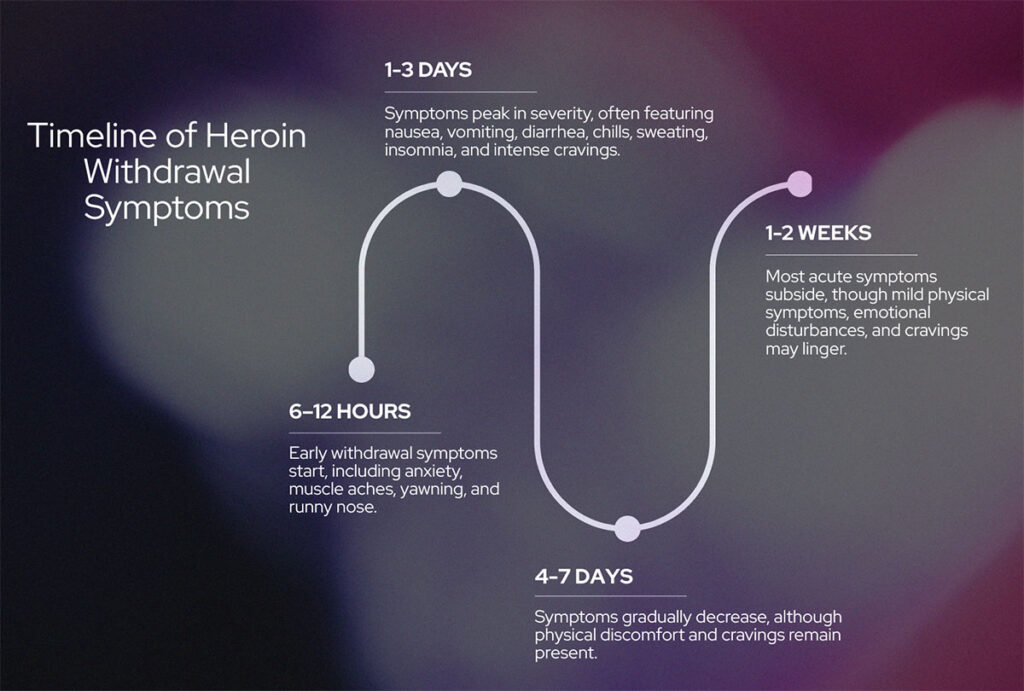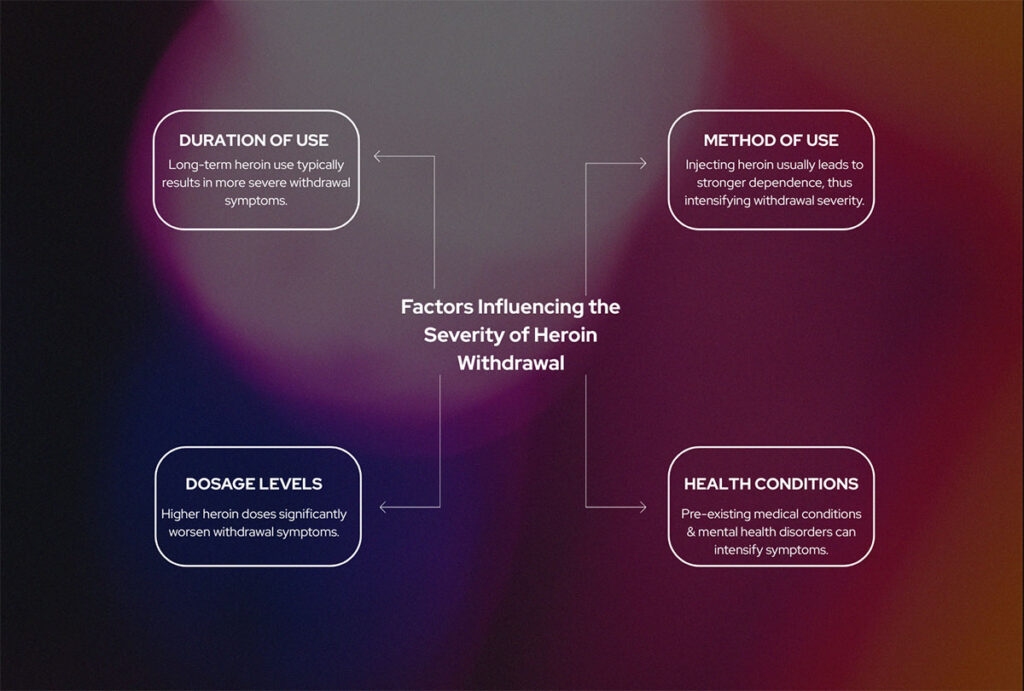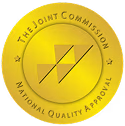Heroin withdrawal symptoms include nausea, muscle aches, anxiety, insomnia, and intense drug cravings. These symptoms occur when someone dependent on heroin suddenly stops or reduces their drug intake. Although heroin withdrawal is usually not life-threatening, the symptoms can be extremely uncomfortable and challenging, often leading to relapse if not properly managed.
Understanding heroin withdrawal symptoms can guide effective treatment and recovery strategies.
Common Heroin Withdrawal Symptoms
Heroin withdrawal symptoms typically affect both the body and mind. Here are the most common symptoms:
1. Muscle Aches and Joint Pain
Intense muscle aches and joint pain are hallmark withdrawal symptoms, often described similarly to severe flu-like symptoms. Pain can be widespread throughout the body.
2. Nausea, Vomiting, and Diarrhea
Gastrointestinal issues such as nausea, vomiting, and diarrhea occur due to heroin's suppression of digestive functions. When the drug is removed, digestive functions rapidly restart, causing discomfort and dehydration.
3. Anxiety and Agitation
Anxiety and agitation commonly arise during withdrawal as the brain struggles to restore normal neurotransmitter levels disrupted by heroin use.
4. Insomnia and Sleep Disturbances
Difficulty falling asleep or staying asleep is frequent during heroin withdrawal, resulting from heightened neurological activity and physical discomfort.
5. Sweating and Chills
Alternating episodes of sweating and chills are common as the body's temperature regulation becomes unstable without heroin’s influence on the nervous system.
6. Runny Nose and Watery Eyes
Symptoms resembling a severe cold, including a runny nose, watery eyes, and nasal congestion, often appear in the early stages of heroin withdrawal.
7. Yawning and Fatigue
Excessive yawning and persistent fatigue commonly occur during withdrawal, signaling the body's attempt to cope with exhaustion from chronic drug dependence.
8. Heroin Cravings
Strong cravings for heroin develop as the brain seeks relief from withdrawal symptoms, making relapse highly likely without proper treatment and support.

Timeline of Heroin Withdrawal Symptoms
Heroin withdrawal symptoms typically follow a specific timeline:
- 6–12 Hours After Last Use: Early withdrawal symptoms start, including anxiety, muscle aches, yawning, and runny nose.
- 1–3 Days After Last Use: Symptoms peak in severity, often featuring nausea, vomiting, diarrhea, chills, sweating, insomnia, and intense cravings.
- 4–7 Days After Last Use: Symptoms gradually decrease, although physical discomfort and cravings remain present.
- 1–2 Weeks After Last Use: Most acute symptoms subside, though mild physical symptoms, emotional disturbances, and cravings may linger.
Factors Influencing Severity of Heroin Withdrawal
Several factors can affect the severity and duration of heroin withdrawal symptoms, including:
- Duration of Use: Long-term heroin use typically results in more severe withdrawal symptoms.
- Dosage Levels: Higher heroin doses significantly worsen withdrawal symptoms.
- Method of Use: Injecting heroin usually leads to stronger dependence, thus intensifying withdrawal severity.
- Individual Health Conditions: Pre-existing medical conditions or mental health disorders can complicate and intensify withdrawal symptoms.

How to Manage Heroin Withdrawal Symptoms?
Managing heroin withdrawal symptoms effectively improves recovery success and reduces relapse risks. Key management strategies include:
1. Medically Assisted Detoxification
Medical detox is strongly recommended to safely manage withdrawal symptoms. Healthcare providers commonly prescribe medications like methadone, buprenorphine, or clonidine to minimize withdrawal severity and reduce cravings.
2. Hydration and Nutrition
Maintaining proper hydration and nutrition during withdrawal helps reduce gastrointestinal discomfort, supports overall health, and aids physical recovery.
3. Behavioral Therapy
Psychotherapy, particularly cognitive-behavioral therapy (CBT), helps individuals manage psychological withdrawal symptoms, cope with cravings, and develop strategies to maintain long-term sobriety.
4. Support Groups and Counseling
Participation in support groups such as Narcotics Anonymous (NA) provides emotional support, practical advice, and community connections crucial during recovery.
Potential Complications of Heroin Withdrawal
Although heroin withdrawal is rarely fatal, complications can still arise:
- Dehydration: Excessive vomiting and diarrhea can lead to severe dehydration, requiring medical intervention.
- Mental Health Issues: Severe anxiety and depression during withdrawal increase the risk of self-harm or relapse.
- Relapse and Overdose: Due to reduced opioid tolerance after withdrawal, relapse significantly raises the risk of accidental overdose, which can be fatal.
When to Seek Medical Help for Heroin Withdrawal?
Immediate medical help is critical if symptoms become severe or overwhelming, especially with persistent vomiting, severe dehydration, extreme anxiety, depression, or suicidal thoughts. Professional medical supervision during withdrawal greatly reduces risks and enhances recovery outcomes.
For comprehensive resources and immediate assistance, consider our heroin addiction treatment program.
Understanding and promptly addressing heroin withdrawal symptoms is a vital step toward successful recovery.





.png)
